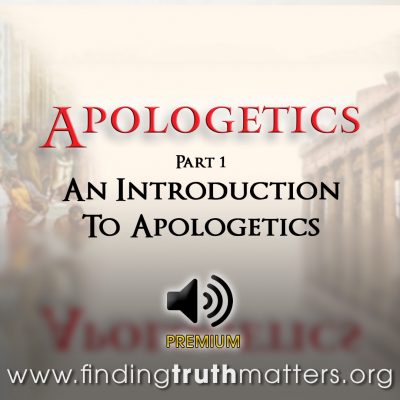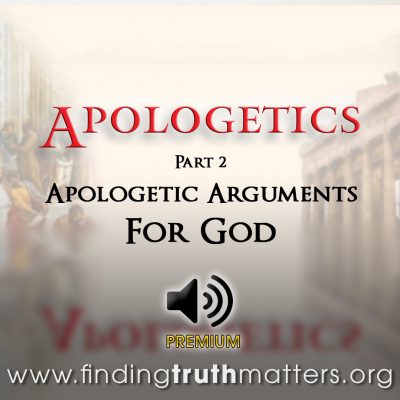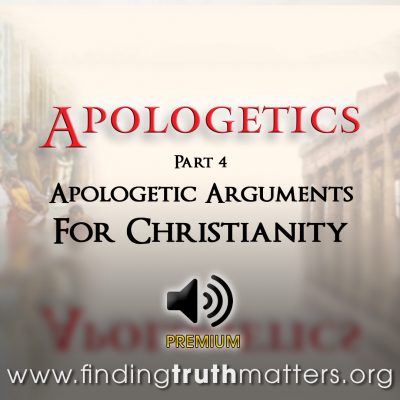
 There are some obscure verses in the Bible that seem to make is difficult for anyone claiming that every word of the Bible is inspired. These obscure verses tend to pop-up through the Old Testament. Some of them seem random. Some of them seem out of place. Take Judges 20:16 as an example-
There are some obscure verses in the Bible that seem to make is difficult for anyone claiming that every word of the Bible is inspired. These obscure verses tend to pop-up through the Old Testament. Some of them seem random. Some of them seem out of place. Take Judges 20:16 as an example-
Among all these were 700 chosen men who were left-handed; every one could sling a stone at a hair and not miss.
Judges 20:16
 Some people who believe the Bible to be divinely inspired resolve these obscure verses by using a combination of ignoring them and ascribing to them a “lesser” divine inspiration. But if the Bible’s own claims about itself are taken seriously, then this approach can not be reconciled with such claims.
Some people who believe the Bible to be divinely inspired resolve these obscure verses by using a combination of ignoring them and ascribing to them a “lesser” divine inspiration. But if the Bible’s own claims about itself are taken seriously, then this approach can not be reconciled with such claims.
One of the primary claims of the Bible is that it is uniquely authoritative (2Timothy 3:16-17).
 1. It’s Factual Claims Are Verifiable
1. It’s Factual Claims Are Verifiable
Many of the historical claims of the Bible have been verified through archaeological discoveries. Organisations like Reasons To Believe have published a wealth of information to show how the ‘scientific’ claims of the Bible can be largely confirmed through what is scientifically verifiable.
2. It’s Time-Frame Prophecies Are Fulfilled
Some of the most outstanding prophecies in the Bible are found in the Book of Isaiah. In Isaiah 53 there are approximately 40 things prophesied about the coming of the Christ. Each of these prophecies were fulfilled by Jesus Christ. These prophecies were made around 750BC. In Daniel 9 there are more prophecies about the coming Christ that seem to give at least a ball-park time-frame for their fulfilment. These time-frame specific prophecies in Daniel correspond to the time of Jesus Christ. It prophesied Christ’s coming, His death, and the resultant ending of Old Testament sacrifices. All of these prophecies, delivered around 450BC, were fulfilled. And most impressively are Christ’s prophecies in Matthew 24, which were given around A.D. 30, and described the inconceivable destruction of Jerusalem and its Temple. Jesus stated that this would all happen within a ‘generation” (Biblically speaking this is 40 years). And it was fulfilled precisely as Christ predicted and precisely within the time-frame that Christ had also given as recorded in Matthew 24 and Luke 21.
3. It Is Remarkably Consistent About What It Says About God
This is despite some 40 different authors, from three continents, over a nearly 2,000 year period! And yet they all describe the same God and complement each other with what they penned.
4. It Adamantly Claims To Be The Word Of God
The Bible repeatedly claims that it is the record of the Word of God to mankind. This actually makes it unique among the ‘holy books’ of the world. It also means that it invites scrutiny. This breath-taking claim has been standing for several thousand years and despite the attempts by many opponents to its claims, is yet to be shown to be a fabrication of men. On the contrary, literally millions of people through the ages have found its contents to be exactly what they claimed to be: the Word of God.
5. Its Claims Can Be Put To The Test
The Bible makes certain existential (in this sense, can be personally experienced) claims that can be tested. For example, it offers peace to those who cast their cares onto the Lord (1Peter 5:7). It offers salvation for anyone who calls upon the name of the Lord (Romans 10:13).
 One the more common sources of misunderstanding about the Bible comes from not appreciating that the Bible is comprised of Two Covenants, Old and New. The first 39 books of the Bible, the Old Covenant, focuses on God’s unfolding through Israel. The remaining 27 books of the Bible, the New Covenant, show that Jesus Christ is the culmination of Israel, and that He is also the fulfilment of all the laws, rituals, cermonies, contained in the Old Covenant in the same way that the object before the sunshine fulfils its shadows (Heb. 10:1). Some very obscure Old Covenant Bible verses become far less obscure when this is appreciated.
One the more common sources of misunderstanding about the Bible comes from not appreciating that the Bible is comprised of Two Covenants, Old and New. The first 39 books of the Bible, the Old Covenant, focuses on God’s unfolding through Israel. The remaining 27 books of the Bible, the New Covenant, show that Jesus Christ is the culmination of Israel, and that He is also the fulfilment of all the laws, rituals, cermonies, contained in the Old Covenant in the same way that the object before the sunshine fulfils its shadows (Heb. 10:1). Some very obscure Old Covenant Bible verses become far less obscure when this is appreciated.
 The Older Covenant contained (i) Moral laws (summed up by the Ten Commandments which served as types of category headers for these Moral Laws), (ii) Food laws (which had dietary benefits and established an ethnically distinct cuisine), (iii) Ceremonial laws (which governed their religious observances), and (iv) Civil laws (which regulated Israel’s public policies and determined the civic penalties for violating any of the laws).
The Older Covenant contained (i) Moral laws (summed up by the Ten Commandments which served as types of category headers for these Moral Laws), (ii) Food laws (which had dietary benefits and established an ethnically distinct cuisine), (iii) Ceremonial laws (which governed their religious observances), and (iv) Civil laws (which regulated Israel’s public policies and determined the civic penalties for violating any of the laws).
The New Covenant reiterates all of the Ten Commandments. It does however explain how the Fourth Command, Keep the Sabbath day holy, by revealing that it was a shadow of the “rest” achieved by the work of Christ (Heb. 4).
Those who fail to grasp how the New Covenant casts its shadow through Old Covenant, or why Israel’s Old Covenant civil penalties – such as stoning to death – do not apply in today’s New Covenant era.
 There are some people who appreciate that the Bible is comprised of 2 Covenants but show their ignorance about the relationship between them. You hear of such ignorance whenever someone states that Old Covenant wasn’t working therefore God invented a new one. This completely misses the point for the Old Covenant becoming obsolete (Heb. 8:16). Although most English Bibles refer to the Old and New Covenants as the Old and New Testaments, this distorts what the Bible is really all about. A Testament is not a Covenant although it may incorporate certain covenants into it. A Testament is best understood in English in the same way that we think of a last Will and Testament.
There are some people who appreciate that the Bible is comprised of 2 Covenants but show their ignorance about the relationship between them. You hear of such ignorance whenever someone states that Old Covenant wasn’t working therefore God invented a new one. This completely misses the point for the Old Covenant becoming obsolete (Heb. 8:16). Although most English Bibles refer to the Old and New Covenants as the Old and New Testaments, this distorts what the Bible is really all about. A Testament is not a Covenant although it may incorporate certain covenants into it. A Testament is best understood in English in the same way that we think of a last Will and Testament.

The Bible speaks of God having a Testament and the beneficiaries of that Testament being referred to as “heirs”. Our inheritance is our everlasting life with God in heaven. A Covenant is not a Testament. A Testament, as in a last will and testament, requires that someone must die (the Testator) so that the heir(s) can receive their inheritance. Whereas a Covenant is enacted without the necessity of the death of one entering into it. The Older Covenant was the establishment of the Testament while the New Covenant was the basis of it. In other words, the Old Covenant – with all its laws – served an educating purpose which the Newer Covenant explains. The New Testament book of First Corinthians also states that what was recorded during the Old Covenant era was recorded for the benefit of New Covenant believers (1Cor. 10:6). Thus, seemingly obscure verses, such as our Text-
Among all these were 700 chosen men who were left-handed; every one could sling a stone at a hair and not miss.
Judges 20:16
The New Testament has some beautiful themes. One of them is redemption. This glorious concept is illustrated directly and indirectly throughout the Old Testament. This verse is a wonderful example of a ‘redemption gem’ almost obscurely hidden amidst a narrative of military history. A left-handed soldier was not a common thing – even left-handed soldiers were trained to fight with their right hand because fighting in hand-to-hand combat with your left hand made your heart more vulnerable to your enemy.

THE VULNERABILITY OF A LEFT-HANDED SOLDIER
Even if a soldier was left-handed, they were trained to fight with their right hand. By fighting right-handedly, their most vital organ, their heart, was less vulnerable in a sword fight. Dr. F.W. Boreham has noted, “When men came to use swords in their warfare, and to fight hand to hand, it became necessary, above all things, to keep the heart as far from antagonism as possible. To fight with the left hand would have exposed that precious organ…” (F.W. Boreham, THE WHISPER OF GOD, page 108) Metaphorically, to be “left-handed” is to expose your heart. To expose your heart is to make yourself vulnerable to heart-ache.
In warfare, it is tactically superior to wound your enemy than to kill him. A wounded soldier requires usually at least two other soldiers to remove them from the battle-line. In ancient warfare, the vanquishing army would often subdue their conquered foe by humiliating them. This might include parading them naked and in chains through their capital city, or even worse chopping off the thumbs of the conquered – or even worse still: cutting off the right hand of their enemies!
A soldier without a right hand could not be considered for any further armed combat. This kind of atrocious war-crime is still carried out today. In ancient times it carried a horrible social stigma. It was a humiliating indication for all to see that this soldier had failed.
Being a left-handed person in ancient times brought with it suspicion. The word “left” comes from the Latin “luf” which means weak, useless. But in fairness, most people’s left hand is only weaker than their right hand because it is not used as much (that is, through neglect).

It is not that a person’s left hand is in actuality weaker or less usefulness than their right hand. The left hand for a right handed person serves to both supplement and complement the right hand. God has made some people to be like “left hands”. They are different – but not useless. They supplement and complement the efforts of others.
These 700 left handed soldiers from Benjamin may have been victims of such war-crimes. They may have had their worlds shattered by the humiliation of being defeated in battle then de-handed! But rather than retire from their armed forces, they may have got to work developing their formerly weaker hand. Through hard work, diligence, and sheer hanging-in-there, many of life’s setbacks can be overcome. These Benjaminites had overcome their “left-handedness” to the extent that
“every one could sling a stone at a hair and not miss.”
These men were not some small elite unit of hero soldiers. There was 700 of them! It seems that each of them excelled because they were together.

THEIR REDEMPTION WAS MADE POSSIBLE THROUGH THEIR FELLOWSHIP
By being grouped together, these 700 broken soldiers became fierce mighty warriors. In life, there will often come humiliating setbacks. The great temptation in these times is to withdraw and become isolated. But your redemption lies in community. Not just a generic community, but the community of the redeemed. It’s verses like Judges 20:16 that illustrate for us that God is a God who redeems. It also serves to highlight that for some people, they may feel like a “left-handed” person in a “right-handed” world – but that God can redeem them and equip them to do extraordinary acts!

Therefore, so called out-of-place or obscure verses such as Judges 20:16 may not be that out of place in the Bible afterall. In fact, all the remaining so-called candidate verses for supporting the idea that the Bible is either not divinely inspired, or only partly divinely inspired, can upon closer investigation be shown to be vital to the overall revelation of who God is, how God redeems, and what the appropriate response of the redeemed should be. Redemption is a major Biblical theme which fragrances such obscure verses as Judges 20:16 and even the now obsolete Old Testament dietary requirements. By appreciating God’s offer of redemption, even by mortally wounded Benjaminites, we might hear the sweet call of the Redeemer inviting us to make our hearts vulnerable to Him.
“Let me lift the thought one step higher. If you dedicate to the sacred service of the world’s Redeemer the best powers that you have, your life will be made altogether beautiful…The word “left” comes from “luf,” which means weak or worthless. It may seem to you that the word exactly describes such meagre powers and privileges as you possess; but lay them upon the altar of supreme consecration to the Crucified, and He will most surely use the weak things to bring to nought things that are mighty.”
-Dr. F.W. Boreham, THE WHISPER OF GOD, Left-Handed Warriors, page 108
© Dr. Andrew Corbett
21st November 2012
-
Sale!

5 Things We Need To Do To Break Our Church’s 200 Barrier, Premium Audio
Original price was: $1.75.$0.95Current price is: $0.95. -
Sale!

A Morning With Izaak Walton – The Compleat Man, Premium Audio
Original price was: $1.75.$1.25Current price is: $1.25. -
Sale!

Apologetics Part 1 – Introduction To Apologetics, Premium Audio
Original price was: $1.75.$0.95Current price is: $0.95. -
Sale!

Apologetics Part 2 – The Apologetic Arguments For God, Premium Audio
Original price was: $1.75.$0.95Current price is: $0.95. -
Sale!

Apologetics Part 3 – The Apologetic Arguments For The Bible, Premium Audio
Original price was: $1.75.$0.95Current price is: $0.95. -
Sale!

Apologetics Part 4 – The Apologetic Arguments For Christianity, Premium Audio
Original price was: $1.75.$0.95Current price is: $0.95.





































0 Comments